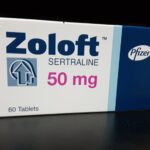What Happens When You Overdose On Seroquel?

An overdose is a biological response to when the human body receives too much of a substance or mix of substances. An overdose can be intentional or accidental. People can overdose on illicit drugs, alcohol, prescription medications, and many other substances.
In many cases, overdoses are fatal, although most individuals who have overdosed can be saved if medical treatment is provided quickly enough. In terms of drugs, there are a few different ways your body can become overwhelmed by substances. However, the most common cause of death during any chemical overdose is respiratory failure.
What is Seroquel?
Seroquel is a brand of Quetiapine, a class of medications called atypical antipsychotics. It works by changing the activity of certain natural substances in the brain. Seroquel is used to treat the symptoms of schizophrenia (a mental illness that causes disturbed or unusual thinking, loss of interest in life, and strong or inappropriate emotions). Quetiapine tablets and extended-release tablets are also used alone or with other medications to treat episodes of mania (frenzied, abnormally excited or irritated mood) or depression in patients with bipolar disorder (manic depressive disorder; a disease that causes episodes of depression, episodes of mania, and other abnormal moods).
In addition, Seroquel tablets are used with other medications to prevent episodes of mania or depression in patients with bipolar disorder. Extended-release tablets are also used along with other medications to treat depression. Seroquel tablets may be used as part of a treatment program to treat bipolar disorder and schizophrenia in children and teenagers.
How is Seroquel taken?
The usual recommended starting dose for schizophrenia is 25 mg twice daily. Quetiapine is usually started with a low dose in order to allow the body to get used to it. This dose is increased as tolerated to a target dose of 150 mg twice daily. No more than 400 mg twice daily should be taken as the safety of higher doses has not been established.
For manic episodes associated with bipolar disorder, the recommended starting dose is 50 mg twice daily. This dose is increased every day up to 400 mg twice daily as tolerated. Most people respond to doses between 200 mg and 400 mg twice daily.
For depressive episodes associated with bipolar disorder, the recommended starting dose is 50 mg once daily, usually at bedtime. This dose is increased every day up to 300 mg once daily as tolerated.
Many things can affect the dose of a medication that a person needs, such as body weight, other medical conditions, and other medications. If your doctor has recommended a dose different from the ones listed here, do not change the way that you are taking the medication without consulting your doctor.
Seroquel can be taken with or without food. Do not stop taking this medication or change the time of the day you take it without consulting your doctor.
It is important to take this medication exactly as prescribed by your doctor to ensure that you are getting the maximum benefit from the medication.
What is a lethal amount of Seroquel?
The recommended maximum dose in humans is 800mg- ( which is <10mg/kg in an average human). One death has been reported in a clinical trial following an overdose of 13600 mg of quetiapine alone, however, survival has also been reported in acute overdoses of up to 30000 mg of quetiapine.
What Happens When You Overdose On Seroquel?
Symptoms of overdose may include the following:
- drowsiness
- dizziness
- fainting
- fast heartbeat
In case of overdose, call the poison control helpline at 1-800-222-1222. Information is also available online at https://www.poisonhelp.org/help. If the victim has collapsed, had a seizure, has trouble breathing, or can’t be awakened, immediately call emergency services at 911.





